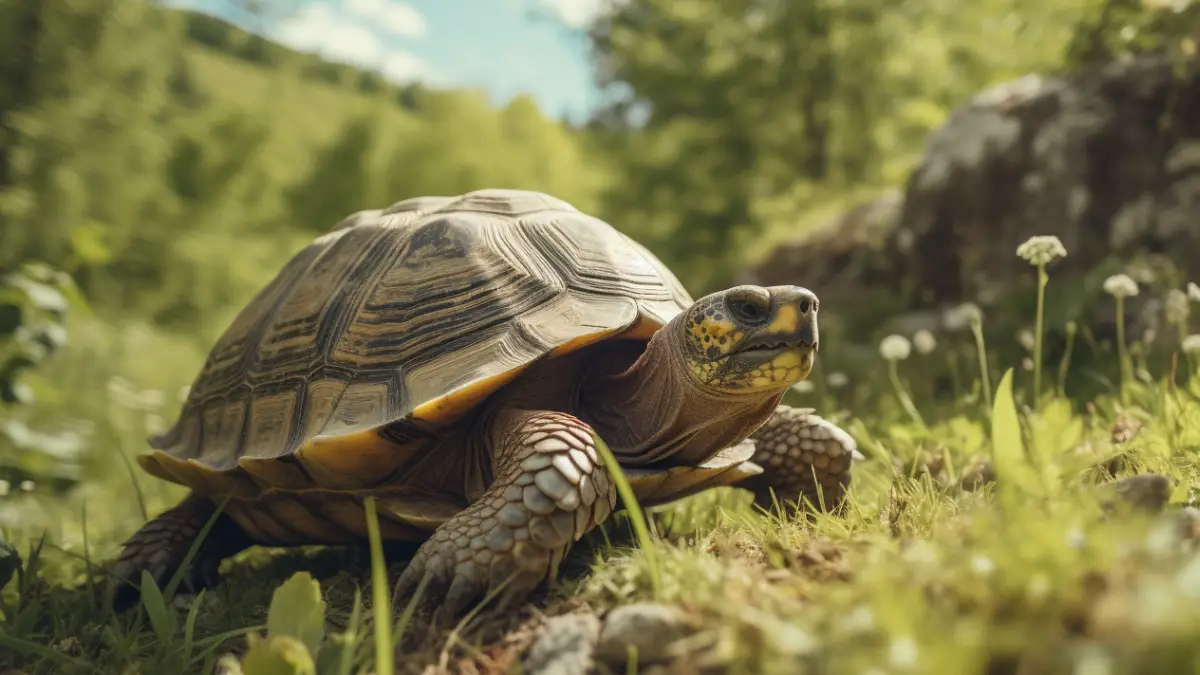Calcium For Tortoise: How Much, Which Food, How To Feed?
As experts in this field, we’re here to make sure you get that one source of calcium for tortoises that don’t have any side effects. Getting questions in mind like ‘how much, which food, how to feed?’
When talking about calcium for tortoises, it doesn’t always have to be a precise value. But if you want to have dietary calcium to phosphorus, the range is in between 1:1 and 2:1. And this can vary though. For example, if you’re talking about the Greek tortoise’s natural diet, the ratio is between 4:1 and 5:1. You can feed leafy greens, kiwi, berries, and good calcium supplements.
Keep reading to know more about the food and how to feed these foods to tortoises.
Calcium For Tortoise: What To Feed?
Contents
Not every food is safe for your tortoise. You can feed this food to your pet for better health.
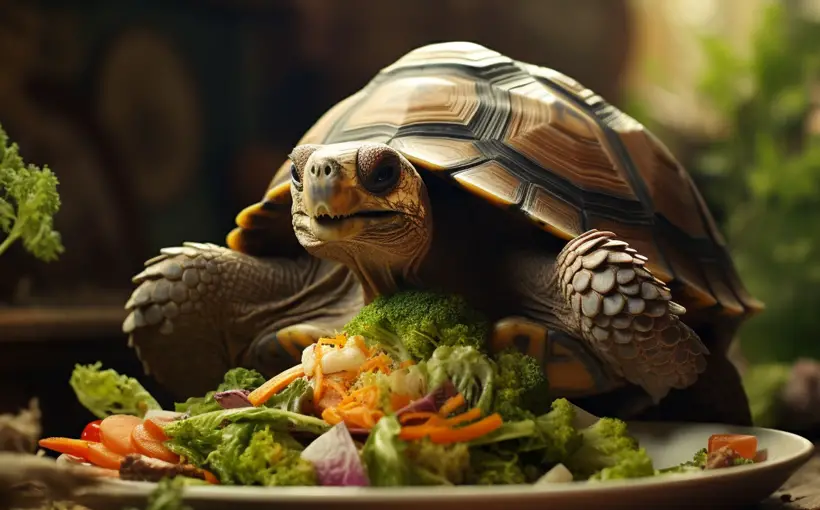
Leafy Greens
Tortoises love leafy greens and there are many. However, the following three are probably the safest ones you can find.
Collard Greens
Collard greens are a fantastic source of calcium for tortoises. Now, you might know that calcium-rich foods have oxalates that can interfere with calcium absorption. Collard greens have low amounts of oxalates which make them a good option for tortoises. They also have nutrients like vitamins A and K.
Mustard Greens
It’s another leafy-green option that is rich in calcium. In fact, it has got a good balance of calcium and phosphorus. This will help your tortoise to have proper bone development. Mustard greens are also high in fiber which aids in digestion while providing vitamins like C and folate.
Turnip Greens
Turnip greens are not only high in calcium but also rich in vitamin A and fiber. The ratio of calcium to phosphorus is pretty balanced in turnip greens. Give it to your tortoise and they’ll absorb the calcium pretty effectively.
Fruits
You can present calcium-rich fruits in front of your tortoise. Try these fruits below.
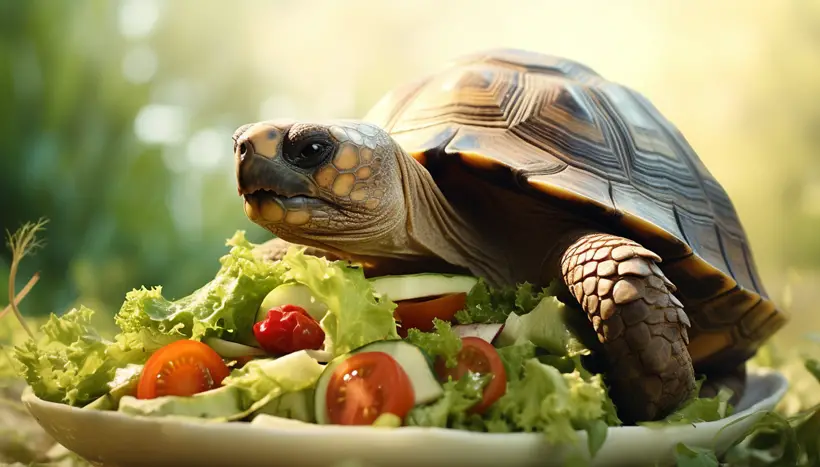
Kiwi
Kiwi is a unique addition to a tortoise’s diet. While it contains some calcium, it’s essential to offer kiwi in moderation due to its high sugar content. Alongside calcium, kiwi is also rich in vitamin C and dietary fiber. However, it should be considered an occasional treat rather than a staple food.
Berries
Berries, such as strawberries, blueberries, and raspberries, can be provided to tortoises as a source of calcium and additional nutrients. These fruits are relatively low in calcium compared to other foods on this list, so they should be given sparingly.
Berries can add variety to your tortoise’s diet and offer vitamins, antioxidants, and hydration. Like kiwi, they should be considered treats and not primary food items.
Calcium Supplements
Taking supplements is pretty important. While there are many supplements available, the following two are most commonly used.
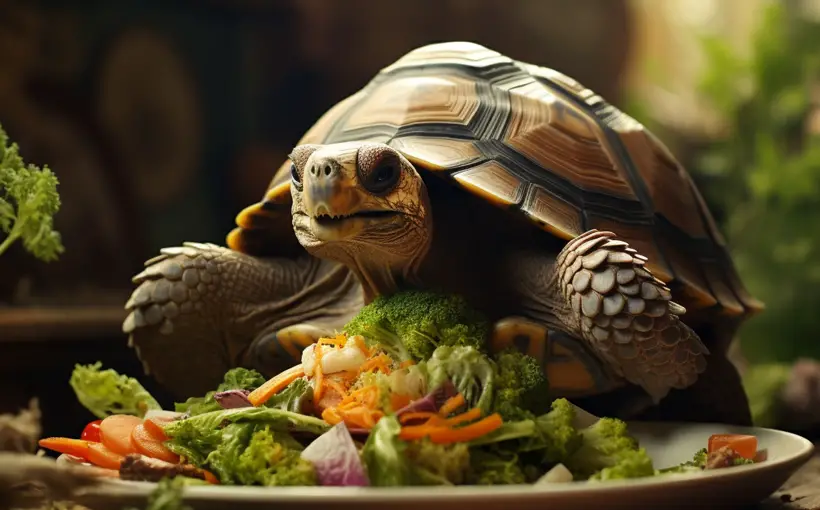
Calcium Carbonate Powder
This is probably one of the best supplements you’ll find. It has the highest calcium concentration by weight. Plus, calcium carbonate powder is pretty easy to find, which makes it a commonly used supplement.
There are other calcium preparations like dolomite or bone meal that have mercury, lead, arsenic, and cadmium. However, calcium carbonate powder is more in the safe zone. The credit goes to its purity.
Cuttlefish Bone
You’ll find this calcium source pretty easily in pet shops, mostly in bird shops. The supplement has calcium carbonate, magnesium salts, calcium phosphate, sodium chloride, and a few micro-trace elements.
Since you can break this supplement into several pieces easily, tortoises will find it pretty easy to eat. Not to mention that it’s 100% natural as well. But then again, you should not rely on cuttlebone alone. You can switch places with calcium carbonate powder sometimes.
How to Give Calcium Supplements to Your Tortoise the Right Way
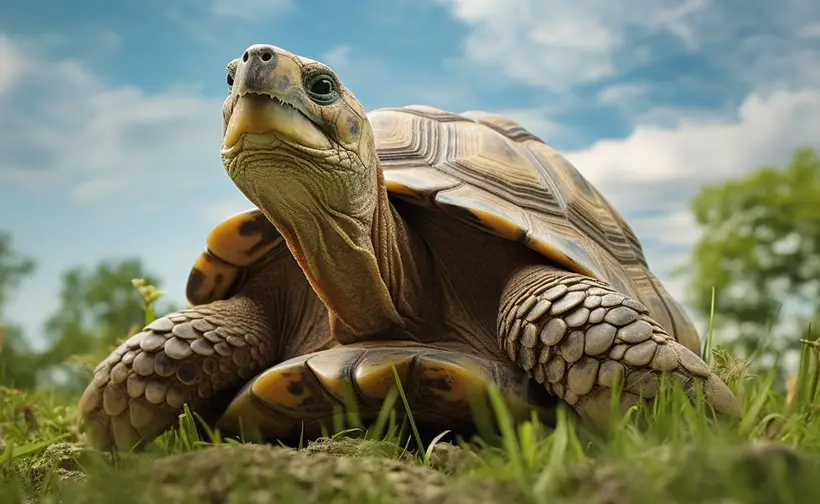
Taking calcium can prevent trace mineral absorption. So make sure you offer extra vitamin and mineral supplements to your tortoise alongside calcium supplements.
- If you’re dealing with hatchlings or juveniles (up to 4 years of age), you can give them calcium, vitamin, and mineral supplements daily.
- Sexually active tortoise needs calcium supplements along with mineral supplements two to three times a week. The same goes for adult, actively egg-laying females.
- It’s crucial for you to create the space or atmosphere for the tortoise to take calcium.
- You can just get a hold of the food and place it in front of the tortoise. As for supplements, especially calcium carbonate powder, sprinkling them over the food of your tortoise is a good move.
- Make sure you don’t put too much calcium carbonate powder on the food. They’re bitter in taste and tortoises won’t eat them if there’s too much powder.
If you’re going for cuttlefish bones, keep in mind that they’re pretty solid in their natural form. So, make sure to break it down into several pieces. If you want to see a complete procedure on how you can prepare the calcium for your tortoise, here’s a video.
These Are The Foods You Should Be Aware Of
There are calcium supplements you can find close to you and a lot of pet enthusiasts might tell you that these are good. But these can be harmful for your tortoise.
Turtle Blocks (Avoid It)
We didn’t add this to recommend it to you but rather to warn you about it. Turtle Blocks are calcium supplements and you can often find it in pet stores.
However, you should avoid using it. They’re mainly made of Plaster of Paris and calcium carbonate. However, they have limited usable calcium (less than 50%) and potential heavy metal contamination. We don’t recommend using them for calcium supplementation.
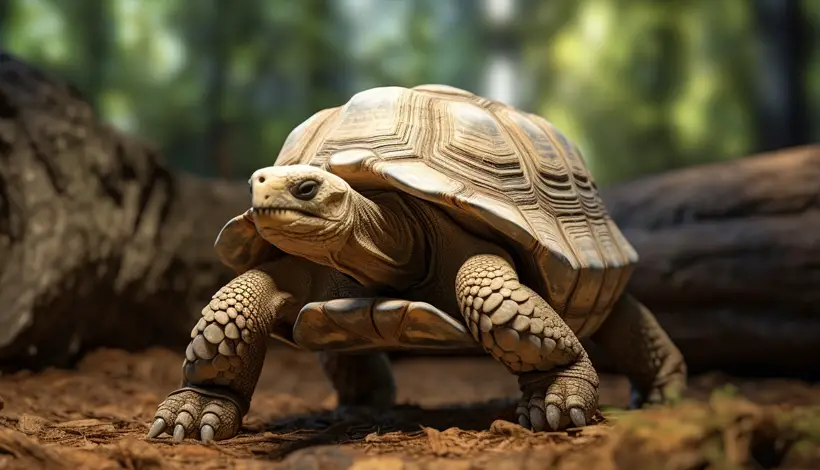
Egg Shells
Even though rich in calcium, egg shells have hormones that are not good for your tortoise. In fact, they can have antibiotic traces in them. What’s worse, they might get your tortoise salmonella infection as well.
However, if you have to go for calcium supplements made from eggshells anyway, you can go for the ones made for human consumption. Keep in mind that these will be much more expensive.
Wrapping Up!
So, now you have the insights on “calcium for tortoise.” Always make sure you’re using the perfect doses though. If you’re new to taking care of your tortoise, you can ask a friend who pets a tortoise, go for a vet or you can email us your queries.

